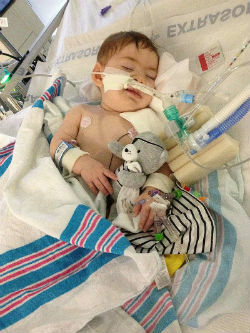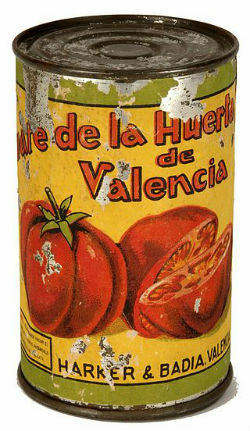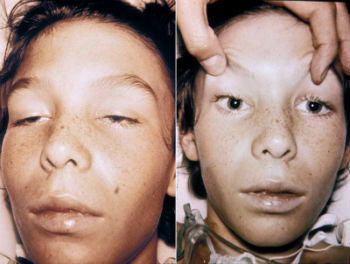Botulism is a rare disease caused by bacteria. The etiological agent is the Clostridium botulinum.
This bacteria is found in soil and in plant and animal foods. It releases neurotoxins (toxins that attack neurons) that can be lethal, causing heavy poisoning through its spores.
 Bacterium Clostridium botulinum
Bacterium Clostridium botulinum
The diagnosis of the disease is made by physical examination, evaluating the symptoms that the person presents.
In addition, blood and stool tests can indicate the presence of spores of this bacteria in the body.
know more about Bacteria.
Streaming
Botulism is transmitted mainly through the consumption of contaminated food and untreated water. In addition, the causative bacteria can reach the body through injuries.
Note that botulism is not a contagious disease, and therefore it is not spread between people.
Types
There are several types of botulism, namely:
- Infant botulism: also called infant botulism or intestinal botulism, this type of disease affects babies less than one year old. The bacteria reach the gastrointestinal system, causing abdominal pain and constipation.
 child with botulism
child with botulism
- food botulism: transmitted by contaminated food, especially canned (canned) that has expired, for example, meat, hearts of palm, pickles, honey, etc. That's because this rod-shaped bacterium can survive in low oxygen environments (anaerobic bacillus).
 Old and rusty canning tin
Old and rusty canning tin
- wound botulism: Skin lesions can be conducive to the contamination of the bacteria that causes botulism. Through the released toxins, this type can cause serious skin infections. Injecting drug users are highly prone to contamination.
 Wounds caused by botulism
Wounds caused by botulism
canine botulism
Canine botulism can manifest itself in domestic animals such as dogs. These animals contract the disease by consuming canned food, garbage, contaminated water and dead animal carcasses.
The symptoms are very similar to those in humans, for example, facial paralysis, weakness and difficulty in swallowing. In most cases, dogs die.
Bovine Botulism
Botulism in ruminants, also called "fallen cow disease", affects the animal's central nervous system causing paralysis.
This usually occurs at times when these animals ingest the spores of the disease-causing bacteria in pastures.
Bovine botulism can also occur with the ingestion of contaminated water or due to the conditions of the environment in which they live. In Brazil, it has been one of the main causes of death in cattle.
Symptoms
 young with botulism
young with botulism
Botulism symptoms can appear 18 hours after being infected. This will depend on the amount of toxin present in the body. The main symptoms are:
- facial weakness
- eyelid trim
- Blurred and double vision
- Dizziness
- Paralysis
- Constipation and difficulty urinating
- abdominal cramps
- Nausea and vomiting
- Dry mouth
- Difficulty swallowing or speaking
- difficulty breathing
Treatment
The bacteria causing botulism have an incubation period of up to 10 days. In most cases, the patient's recovery is slow and can take weeks.
The treatment of botulism is done through medications that fight the toxins of the causing bacteria, called antibotulinums.
As it is a serious and often fatal disease, the carrier must remain at rest and under observation. In most cases, the person remains in the hospital.
Depending on the cases, the ingestion of food through the veins (intravenous) may be recommended, as the patient has difficulty breathing and speaking.
In addition, breathing aids can be recommended by specialists.
It is worth remembering that if left untreated, botulism can lead to the death of those infected. The most common complications that lead to patients' deaths are: respiratory failure (paralysis of the respiratory muscles), asphyxia, involvement of the nervous system and infections.
Prevention
The prophylaxis of the disease is done by avoiding the consumption of canned foods, especially those that are out of date.
Honey is one of the most dangerous, and therefore, children under 1 year old should avoid consuming this food.
If consuming, you must check the origin of the product, the conditions of the packaging, eg rusty cans.
It is recommended to cook these foods, as high temperatures eliminate the bacteria. Also, drinking treated water is essential.
If you want to know more about diseases, also read the articles:
- Diseases Caused by Bacteria
- Diseases Caused by Protozoa
- STD - Sexually Transmitted Diseases



